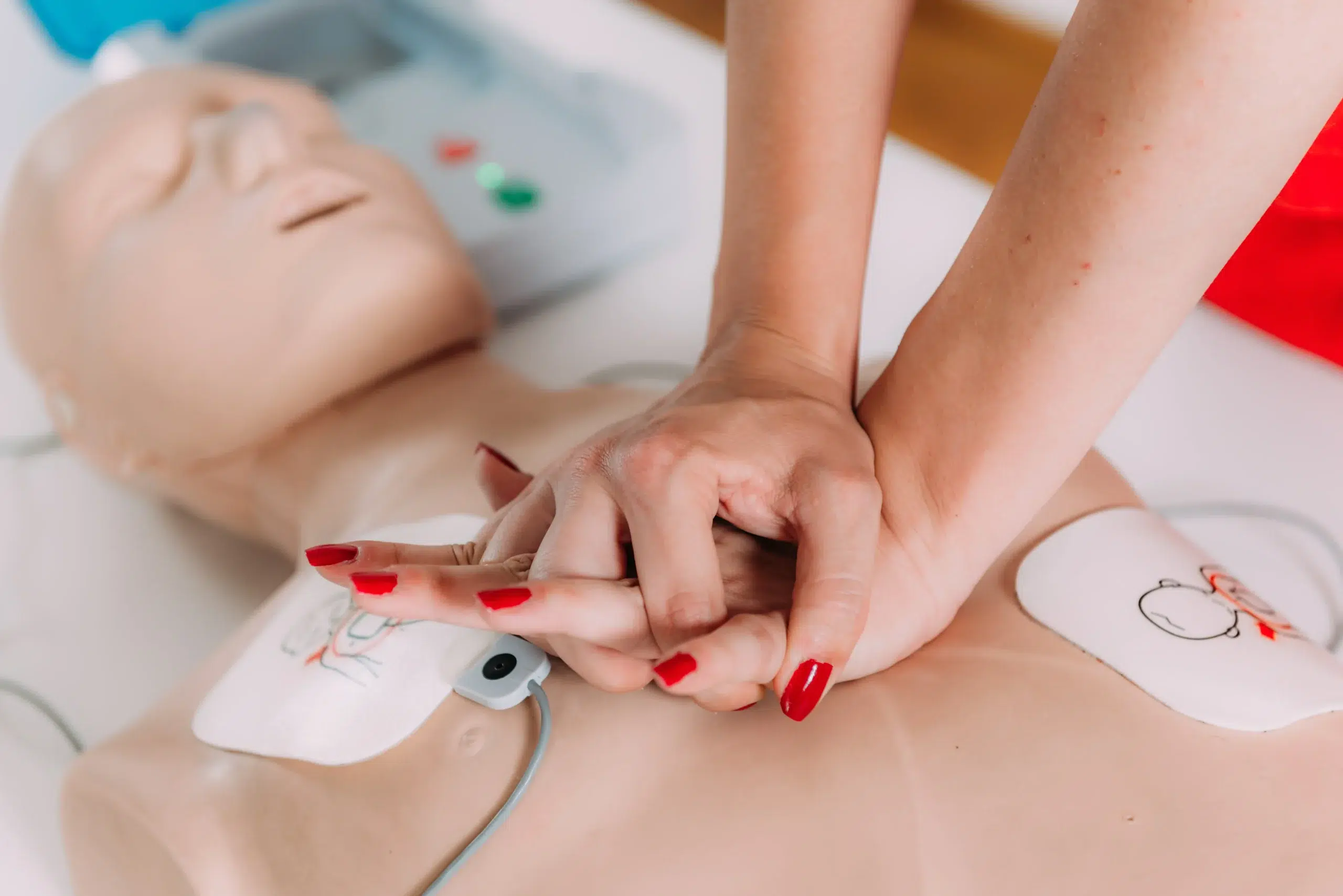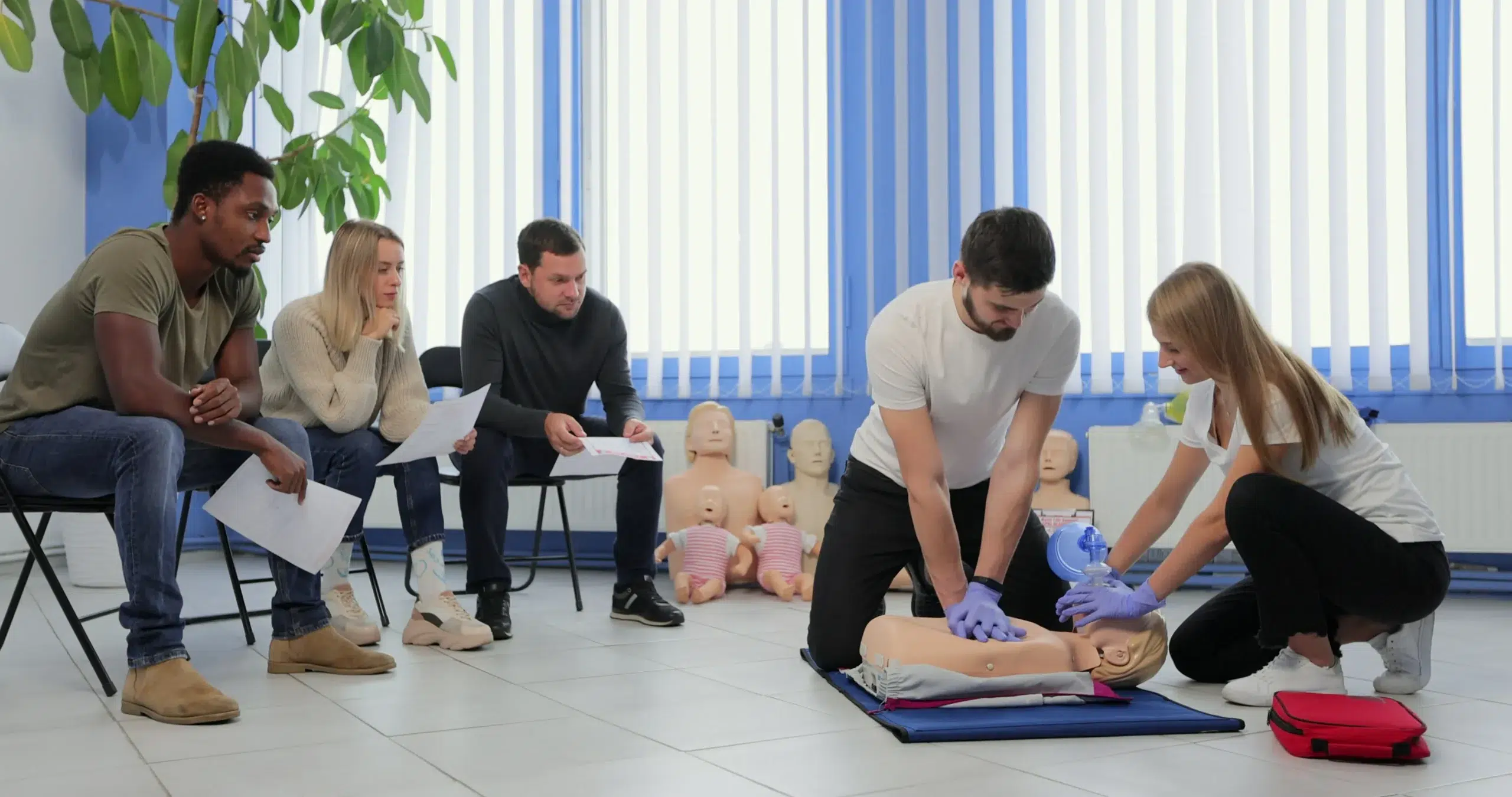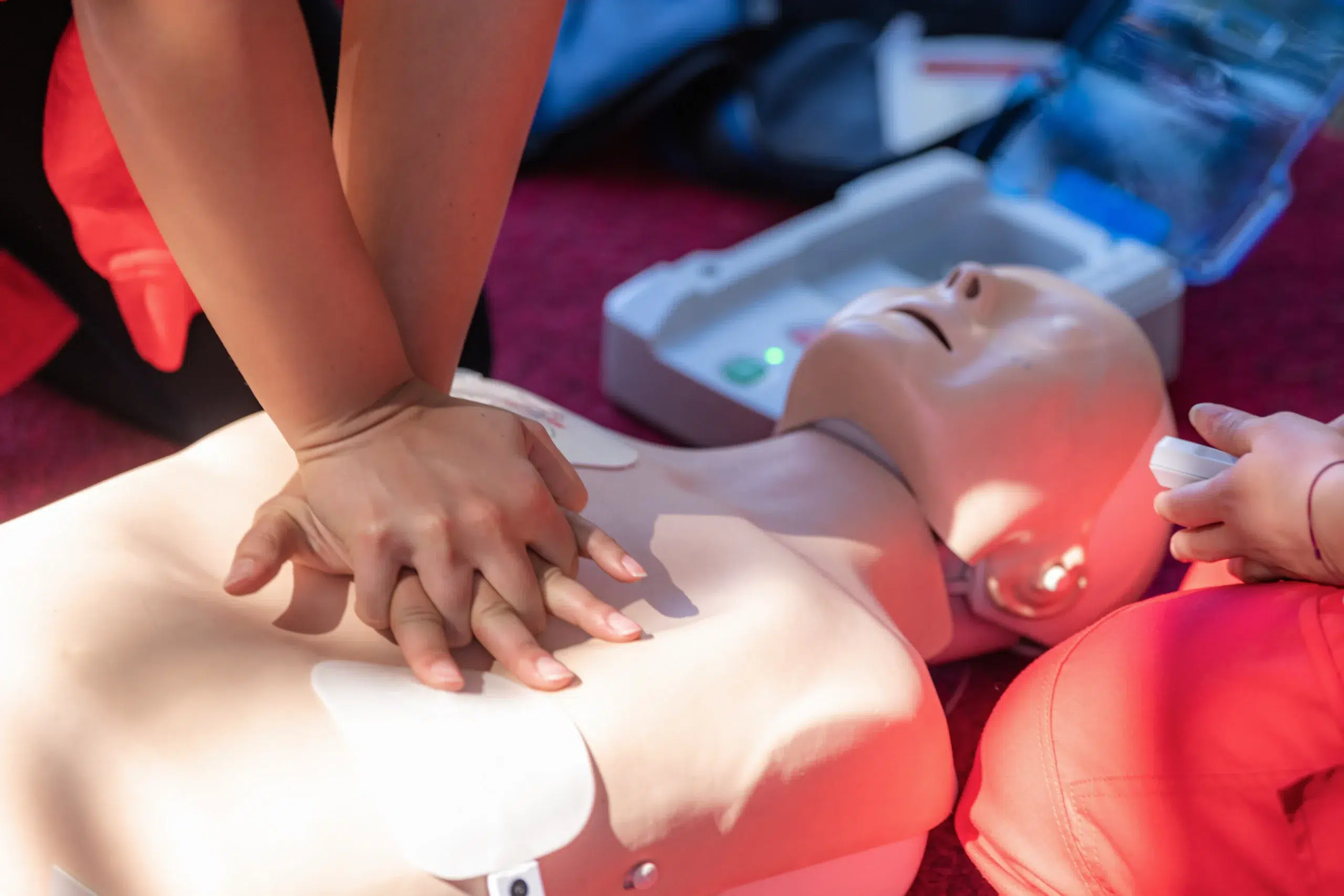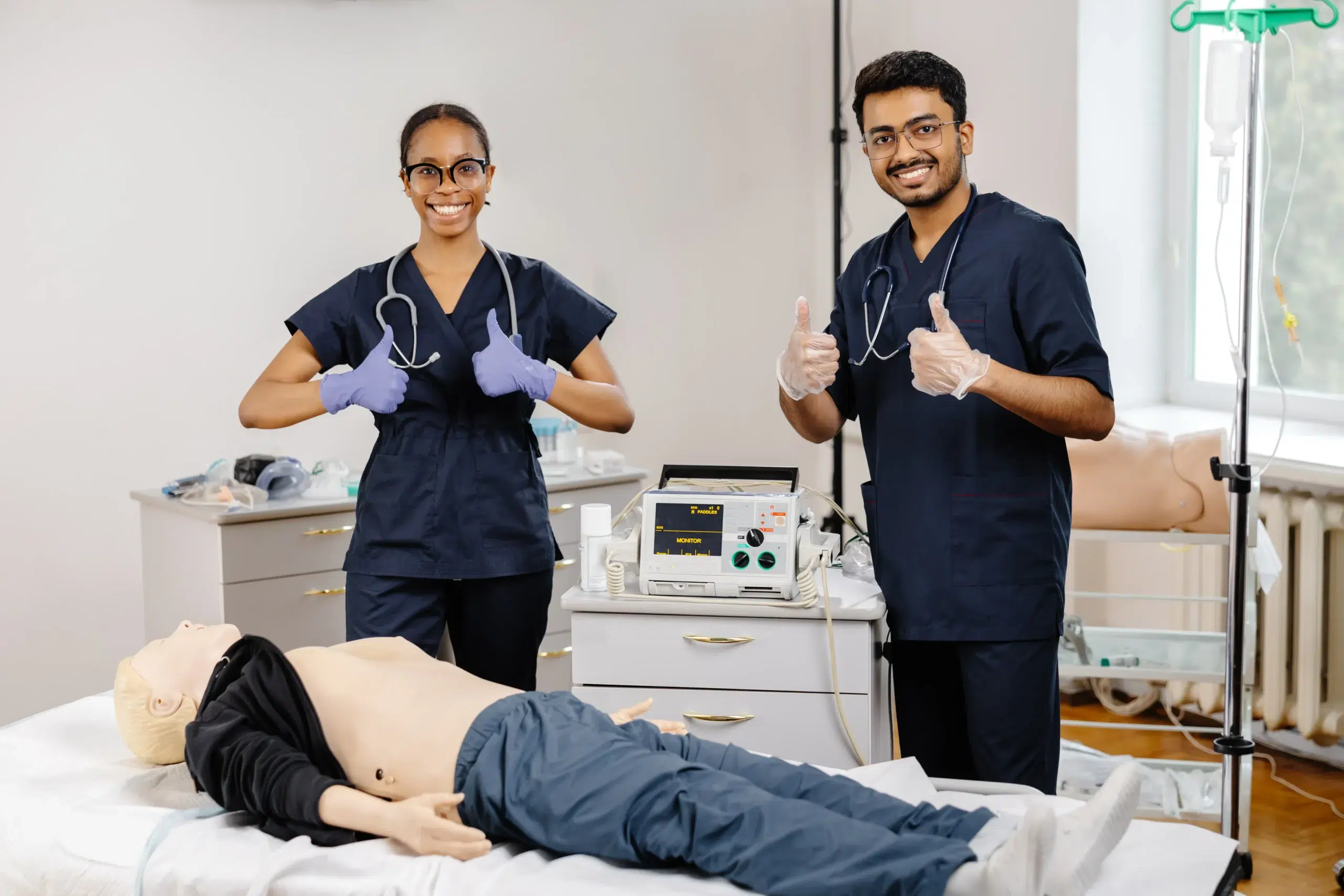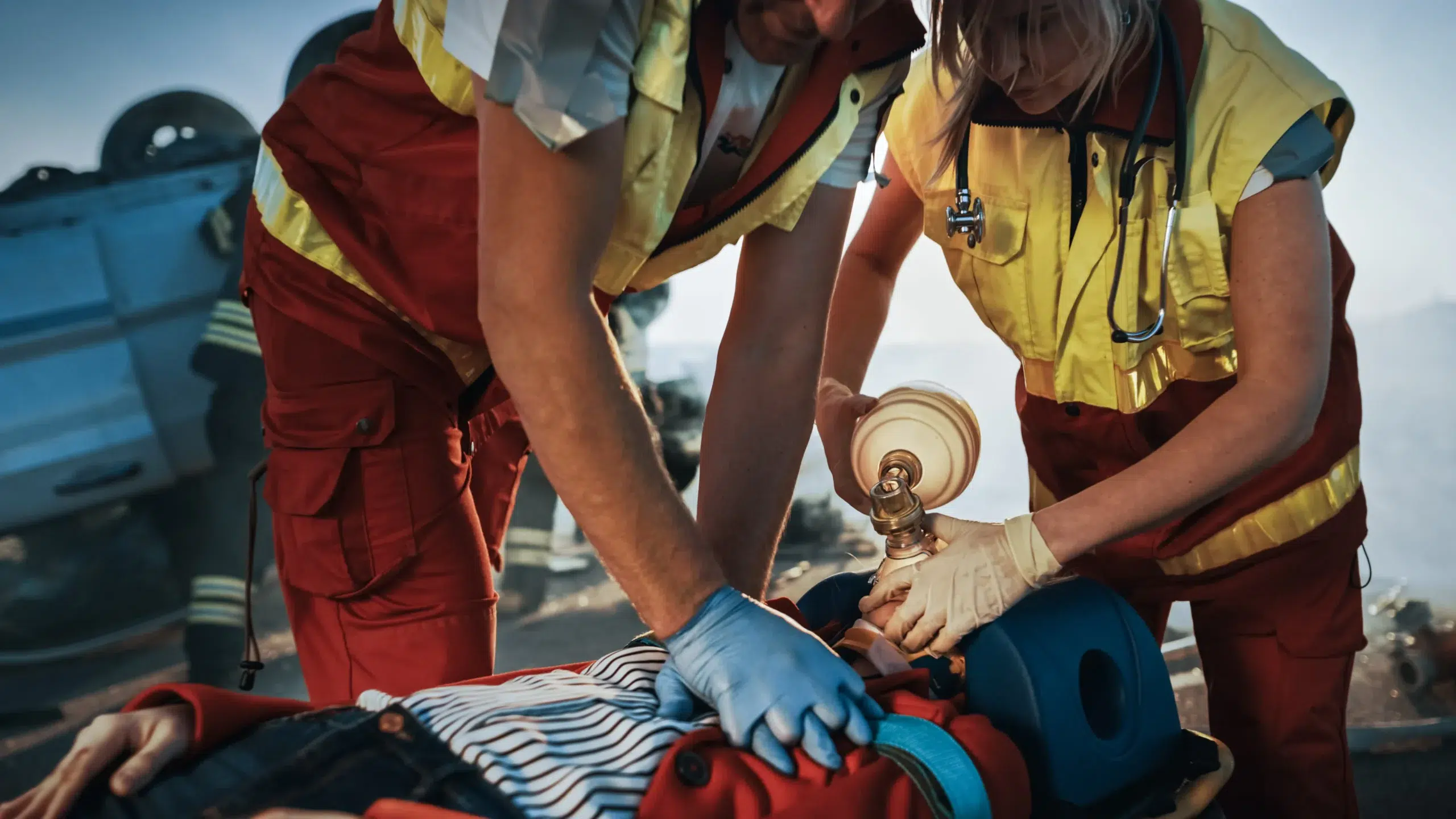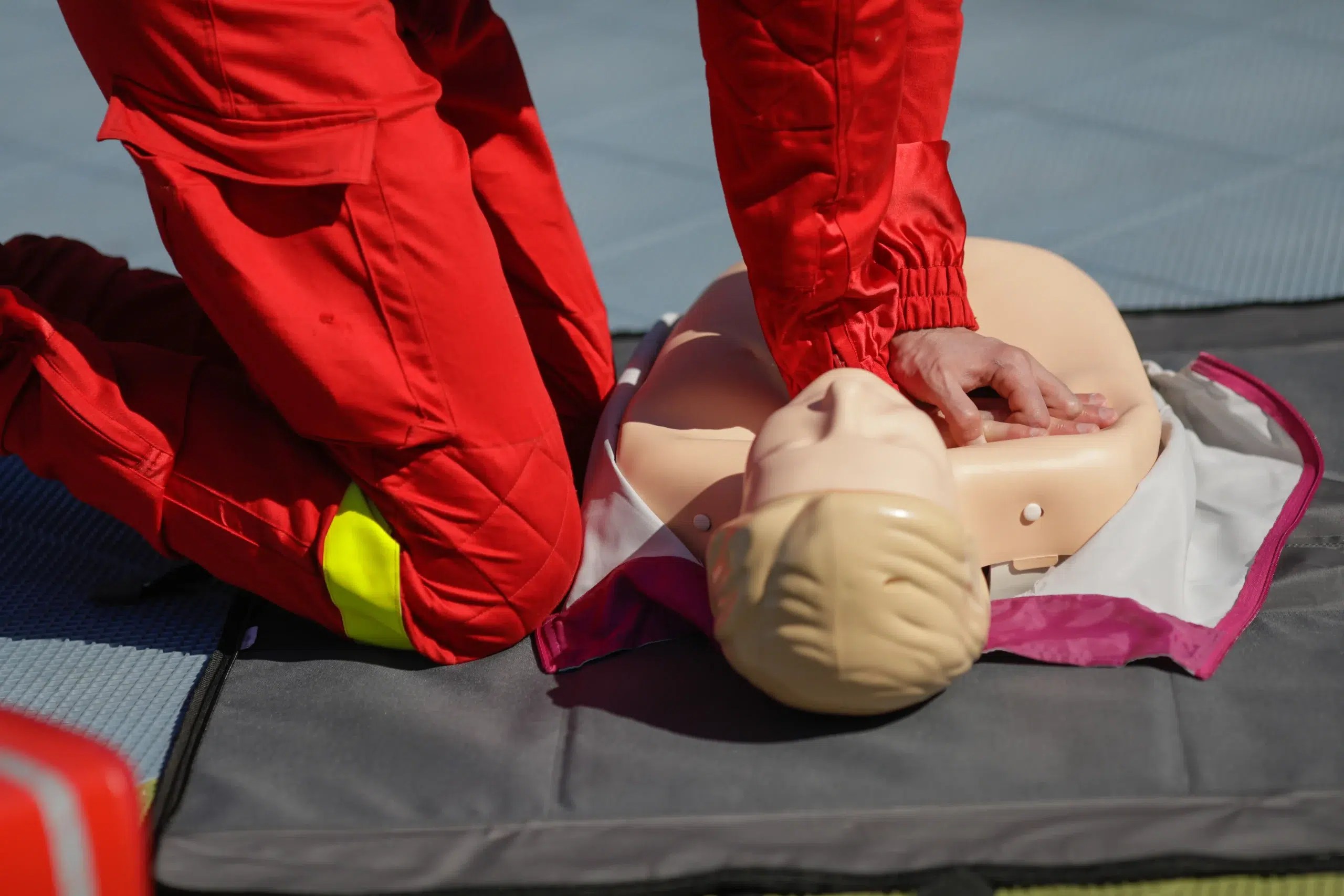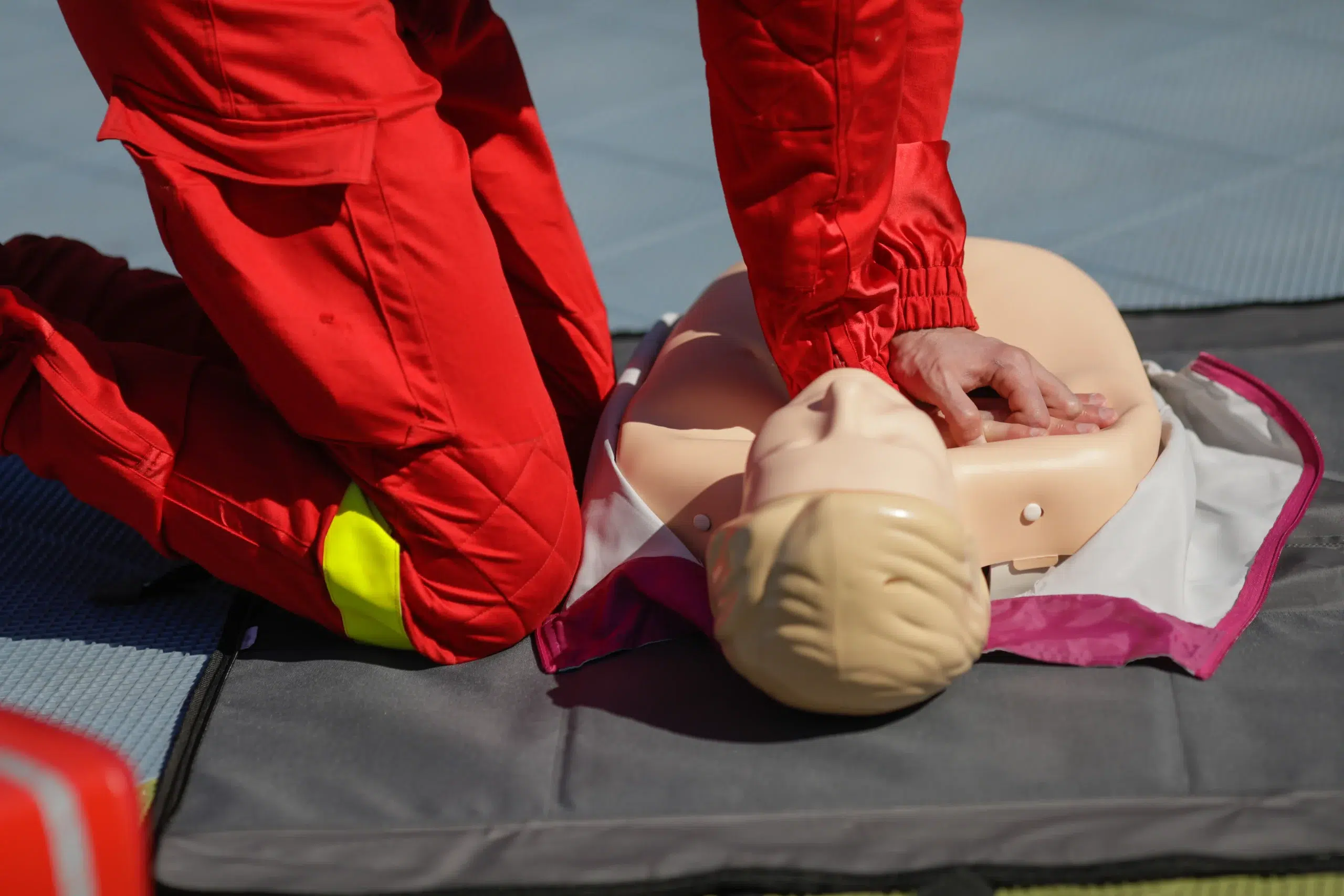Your CPR skills are like any other skill—they get rusty without practice. If you’re in Sunnyvale and your CPR certification is nearing its expiration date, it’s time for a refresher. Finding a CPR renewal in Sunnyvale is easier than you think. This guide will walk you through the process, from understanding the latest AHA guidelines to choosing between in-person and online courses. We’ll explore reputable providers like Safety Training Seminars, discuss what to expect during your renewal course, and offer tips for maintaining your skills long after you’ve recertified. Let’s make sure you’re ready to respond confidently in any emergency.
Key Takeaways
- Stay current with life-saving skills through timely CPR renewal. Find an AHA-certified provider like Safety Training Seminars, conveniently located in Sunnyvale, and choose a course format—online, in-person, or blended—that suits your needs. Renewing promptly often allows you to take a shorter refresher course.
- Select the best renewal format based on your learning style and schedule. Online courses offer flexibility, while in-person training provides hands-on practice with expert guidance. Blended learning combines online convenience with in-person skills sessions. Healthcare providers can explore the streamlined RQI program.
- Maintain your CPR skills after renewal through ongoing practice and access to resources. Regularly review key steps, utilize online refreshers and practice scenarios, and stay informed about updates to guidelines to ensure you’re always prepared for emergencies.
What is CPR Renewal in Sunnyvale?
If your CPR certification is expiring, you’ll need a renewal course. Safety Training Seminars offers American Heart Association (AHA) certified classes in CPR, BLS, ACLS, PALS, and First Aid. They also offer other courses like NRP (in other locations) and EMSA Health & Safety training. Located at 830 Stewart Drive, Suite 133, they offer convenient access for anyone in the Sunnyvale, San Jose, and Santa Clara areas, with extended daily hours from 8 am to 10 pm.
Why Renew Your CPR Certification?
CPR certification is valid for two years. It’s essential to renew your certification promptly—ideally within 30 days of expiration. This often allows you to take a shorter renewal course rather than starting from scratch with a full course. Staying current with your CPR skills ensures you’re prepared to respond effectively in an emergency. Renewal courses cover the latest medical advancements and techniques, giving you the confidence to provide the best possible care.
Debunking CPR Renewal Myths
One common misconception is that online-only CPR certifications aren’t valid. While some employers and organizations (like OSHA) may require in-person skills testing, many do accept online CPR certifications. The key is to ensure your certification comes from a reputable organization like the AHA or the American Red Cross. Always check your employer’s specific requirements before choosing a renewal course. Safety Training Seminars offers a blended learning approach with online coursework and in-person skills sessions, providing flexibility while meeting workplace standards. For those seeking the best value, they also offer a low price guarantee.
Find Top-Rated CPR Renewal Courses in Sunnyvale
Finding the right CPR renewal course can feel overwhelming, but several excellent providers in Sunnyvale make the process straightforward. Here are a few options to consider:
Safety Training Seminars
Safety Training Seminars, a woman-owned AHA Training Center, offers various American Heart Association (AHA)-certified courses, including CPR, BLS, ACLS, PALS, and First Aid. Their convenient Sunnyvale location and extended hours (8 am to 10 pm) make scheduling your training easy. They also offer a low price guarantee.
Bay Area CPR
Bay Area CPR is another excellent choice for CPR renewal. They offer a range of AHA-certified courses, including BLS, ACLS, PALS, and combined CPR/First Aid. Their accessible location serves residents near Palo Alto and Santa Clara, giving you flexibility in finding a course that fits your schedule and location needs. View their CPR class schedule.
AHA-Certified Providers
When selecting a CPR renewal course, ensure your provider is AHA-certified. This guarantees you receive high-quality training that meets industry standards and provides a widely accepted certification. Both Safety Training Seminars and Bay Area CPR are recognized for their commitment to AHA guidelines, ensuring your training prepares you for real-world emergencies.
CPR Renewal Costs in Sunnyvale
CPR renewal doesn’t have to break the bank. Understanding typical costs and influencing factors can help you find the best value for your recertification.
Typical Prices for Certifications
In Sunnyvale, CPR renewal courses generally start around $120. This often covers the online portion, the in-person skills test, and your official certification card. This comprehensive package makes renewing your skills and credentials straightforward and affordable. For current pricing, check out our American Heart Association BLS courses.
What Affects Course Costs?
Several factors can affect the final price. The type of certification you need plays a big role. Basic CPR and First Aid renewal will usually differ in price from more advanced certifications like ACLS (Advanced Cardiovascular Life Support) or PALS (Pediatric Advanced Life Support). Also, some providers offer combination courses, such as CPR and First Aid bundled together, which can impact the overall cost. If you’re renewing with a group, ask about potential discounts. Many training centers offer reduced rates for companies certifying multiple people. For more information, see our CPR and First Aid courses.
Find Low Price Guarantees
To make sure you’re getting the best deal, look for providers who offer a low price guarantee. Some companies in the Sunnyvale area promise to match or beat competitor pricing, ensuring you receive high-quality training without overspending. Safety Training Seminars offers a low price guarantee on our courses, giving you peace of mind that you’re investing wisely in your CPR renewal.
What to Expect During CPR Renewal
Renewing your CPR certification is straightforward, designed to refresh your skills and knowledge. Here’s what you can typically expect:
Online Learning and Self-Paced Courses
Many organizations offer blended learning CPR courses that combine online learning with in-person skills practice. This lets you study the theory online at your own pace, fitting it around your schedule. You’ll cover essential concepts and procedures before demonstrating your skills in person.
In-Person Skills Tests
After completing the online portion, you’ll attend an in-person skills session. This hands-on component usually takes about 40 to 60 minutes. You’ll perform CPR techniques on a manikin under the guidance of a certified instructor, ensuring you can apply your knowledge in a real-life emergency.
Time Commitment and Same-Day Certification Options
The total time commitment for CPR renewal varies depending on the course and provider. Many programs offer streamlined options, allowing you to complete both the online learning and in-person skills test on the same day. Our RQI program, for example, offers same-day certification, getting you back to work quickly with your updated credentials. You’ll receive your certification card immediately after completing the skills test.
In-Person vs. Online CPR Renewal: Choose Your Best Fit
Deciding between in-person and online CPR renewal depends on your learning style, schedule, and budget. Both options offer distinct advantages, so consider what best suits your needs.
Benefits of In-Person Training
In-person CPR renewal provides a hands-on learning environment ideal for those who thrive on direct interaction. You’ll practice techniques under the watchful eye of a certified instructor who can offer immediate feedback and address specific questions. This real-time interaction and personalized instruction can significantly improve your confidence in responding to emergencies. For some, practicing on mannequins and receiving real-time feedback is essential for mastering these life-saving skills. However, in-person classes often require adhering to a fixed schedule and may involve commuting to a specific location, which can be a challenge for busy individuals. Consider what works best for your learning style and availability.
Advantages of Online Renewal
Online CPR renewal offers unparalleled flexibility and convenience. You can complete the coursework at your own pace, fitting it around your busy schedule and learning from anywhere with an internet connection. This format is particularly helpful for those juggling work, family, or other commitments. Online renewal often allows you to review materials multiple times, solidifying your understanding of key concepts. While online renewal offers many benefits, it’s important to honestly assess your learning style. If you find hands-on practice essential, consider supplementing your online coursework with an in-person skills session. This blended approach can offer the best of both worlds.
RQI Program for Healthcare Professionals
Healthcare providers in Sunnyvale have another efficient option for maintaining their certifications: the American Heart Association’s Resuscitation Quality Improvement (RQI) program. RQI uses a blended learning approach, combining online learning with frequent skills assessments. This method reinforces crucial skills and ensures competency through low-dose, high-frequency practice. The RQI program helps healthcare professionals stay up-to-date with the latest resuscitation guidelines and maintain their proficiency in life-saving techniques. Learn more about how the RQI program offers a convenient and effective way to renew your BLS, ACLS, and PALS certifications.
Select the Right CPR Renewal Course
Choosing the right CPR renewal course involves understanding your needs and finding a program that fits your schedule and learning style. Here’s a breakdown of factors to consider:
Meet Your Professional Requirements
First, confirm your workplace’s requirements. Most certifications are valid for two years and are renewable within a 30-day grace period following the expiration date. Knowing this timeframe helps you plan and avoid a lapse in your certification. You can find more information on renewal timelines from resources like this article on CPR certification renewal. Also, check if your employer requires a specific CPR certification level, such as Basic Life Support (BLS) or Advanced Cardiovascular Life Support (ACLS), or training aligned with American Heart Association guidelines.
Evaluate Course Formats and Schedules
CPR renewal courses are offered in various formats. Consider whether in-person, online, or blended learning works best for you. Safety Training Seminars offers a mix of online learning and in-person skills sessions, providing flexibility. Think about your learning style and how you best absorb information. If you prefer hands-on instruction, a traditional classroom setting might be a good fit. If you need more flexibility, explore online or blended options. Check course schedules and locations to find a course that accommodates your availability. Many providers offer weekend and evening classes for busy professionals.
Find Key Provider Features
Look for providers that offer additional features or certifications relevant to your field. For healthcare professionals in Sunnyvale, the American Heart Association’s Resuscitation Quality Improvement (RQI) program offers a streamlined path to renew BLS, ACLS, and PALS certifications. Some providers also offer CPR and First-Aid training bundled together, which can be convenient and cost-effective. Finally, consider factors like class size, instructor experience, and the provider’s reputation. Reading reviews and testimonials can offer valuable insights into the quality of the training.
Get Ready for Your CPR Renewal in Sunnyvale
Getting recertified is straightforward. Here’s how to prepare for your upcoming CPR renewal course in Sunnyvale:
What to Bring to Your Course
Pack light for your CPR renewal course. You’ll receive a free keychain CPR training mask at the class. Make sure you have your USI number (Unique Student Identifier) available. For the practical assessment, you’ll need access to a manikin or a volunteer to practice your skills on.
Tips for a Smooth Renewal
A few simple steps can make your renewal process even easier. Check the expiration date on your current CPR certification card and mark your calendar to renew every two years. Give yourself plenty of time to find a course that fits your schedule. Watching any available pre-class videos can significantly improve your chances of acing the skills test. If you’re a healthcare professional seeking a faster way to renew your BLS, ACLS, or PALS certification, consider the RQI program. It combines online learning with in-person skills sessions.
Maintain Your CPR Skills After Renewal
Renewing your CPR certification is a crucial first step, but maintaining those skills is an ongoing process. Consistent practice and access to the right resources will ensure you’re always prepared to act quickly and confidently in an emergency.
Access Resources and Support
After your CPR renewal course, take advantage of available resources to reinforce your learning. Many organizations, like the American Red Cross and the American Heart Association, offer online refreshers, practice scenarios, and updated guidelines. These resources can help you stay current with the latest techniques. You can also find valuable information on sites like Avive, which offers insights into CPR renewal frequency and different learning options. Consider joining online communities where you can connect with other CPR-certified individuals and share experiences.
Keep Your Skills Sharp
Regular practice is key to maintaining proficiency in CPR. Set aside time each month to review the steps, whether through online simulations or hands-on practice with a manikin. This will help solidify the skills and build muscle memory so you can respond effectively under pressure. Staying informed about updates to CPR guidelines is also essential. Organizations like PALS STL often publish resources highlighting changes in procedures. By keeping your knowledge current, you ensure you’re providing the best possible care. Remember, maintaining your CPR skills is a commitment to lifelong learning and preparedness.
Why Renew Your CPR Certification Regularly?
Knowing CPR can empower you to save a life. But CPR techniques and best practices change, so staying up-to-date is essential for providing effective care. Regularly renewing your CPR certification offers several key benefits:
Stay Updated on Techniques and Guidelines
CPR guidelines are constantly evolving based on the latest research. Renewing your CPR certification ensures you’re using the most current, evidence-based techniques. This commitment to ongoing learning means you’re prepared to deliver the best possible care during emergencies.
Build Confidence in Emergencies
Emergencies are stressful. Regular CPR training not only refreshes your skills but also builds your confidence to respond effectively under pressure. When you know you have the latest training, you can act decisively and efficiently when every second counts. This confidence can make a real difference. CPR classes provide students with the confidence to act when moments matter.
How Current Certification Impacts Your Career
Many healthcare and emergency response roles require current CPR certification. Renewing your certification demonstrates your commitment to professional development and ensures you meet these crucial employment requirements. For healthcare providers, maintaining current certification is often a prerequisite for employment. Even if not strictly required for your job, an up-to-date certification enhances your resume. While convenient online renewal options exist, traditional in-person CPR renewal classes offer valuable hands-on training, further strengthening your skills.
2024 CPR Guideline Updates
Staying current with the latest CPR guidelines ensures you’re prepared to provide the most effective care in an emergency. Regularly reviewing updates helps you maintain the highest standard of care and potentially improve outcomes. Let’s explore some key changes reflected in recent guidelines.
Changes to Chest Compressions
CPR guidelines undergo periodic reviews and revisions to reflect the latest scientific evidence and best practices. These updates often include changes to chest compression techniques, such as the recommended depth and rate. Staying informed about these updates is crucial for anyone with CPR certification. Training programs adapt to these changes, ensuring that certified individuals possess the most current and effective techniques.
New Medication Recommendations
Advanced Cardiovascular Life Support (ACLS) guidelines also see regular updates, particularly regarding medication recommendations. For instance, the 2023 AHA Focused Update provides new guidance on using medications like epinephrine during cardiac arrest. These updates often reflect new research and clinical trials, aiming to optimize patient outcomes. Reviewing these changes is essential for healthcare professionals who use ACLS in their practice.
Focus on Early Epinephrine
The timely administration of epinephrine during cardiac arrest has become a significant focus in recent BLS guidelines. Studies have shown that early use of epinephrine can significantly improve survival rates. This emphasis underscores the importance of quick action and proper training for recognizing and responding to cardiac arrest situations. CPR renewal courses cover these updates, ensuring you’re prepared to administer epinephrine effectively when necessary.
Related Articles
- CPR Training in Santa Clara: Your Complete Guide – San Jose CPR Classes
- San Jose CPR Certification: Your Guide – San Jose CPR Classes
- CPR Renewal in San Jose: Your Complete Guide – San Jose CPR Classes
- CPR Myths You Need to Stop Believing – San Jose CPR Classes
- American Heart Association Course – San Jose CPR Classes
Frequently Asked Questions
How often do I need to renew my CPR certification? CPR certifications are typically valid for two years. It’s best to renew within 30 days before or after your certification expires. This often allows you to take a shorter refresher course.
What’s the difference between online and in-person CPR renewal? Online renewal offers flexibility, letting you learn at your own pace from anywhere. In-person classes provide hands-on practice with a certified instructor and allow for immediate feedback. Blended learning combines online coursework with an in-person skills test, offering a balance of convenience and practical experience.
How much does CPR renewal cost in Sunnyvale? CPR renewal costs vary depending on the provider and the type of certification. Basic CPR renewal typically starts around $120 in Sunnyvale. More advanced certifications like ACLS or PALS may have different pricing. Look for providers offering a low price guarantee to ensure you’re getting a good value.
What should I expect during a CPR renewal course? Most renewal courses involve online learning followed by an in-person skills test. During the skills test, you’ll demonstrate CPR techniques on a manikin under the supervision of an instructor. The entire process, including online learning and the in-person skills test, can often be completed in a single day.
How can I maintain my CPR skills after I renew my certification? Regularly review CPR guidelines and best practices. Practice your skills periodically, even if it’s just a quick refresher. Consider joining online communities or accessing resources from organizations like the American Heart Association or the American Red Cross to stay up-to-date and connected with other CPR-certified individuals.


